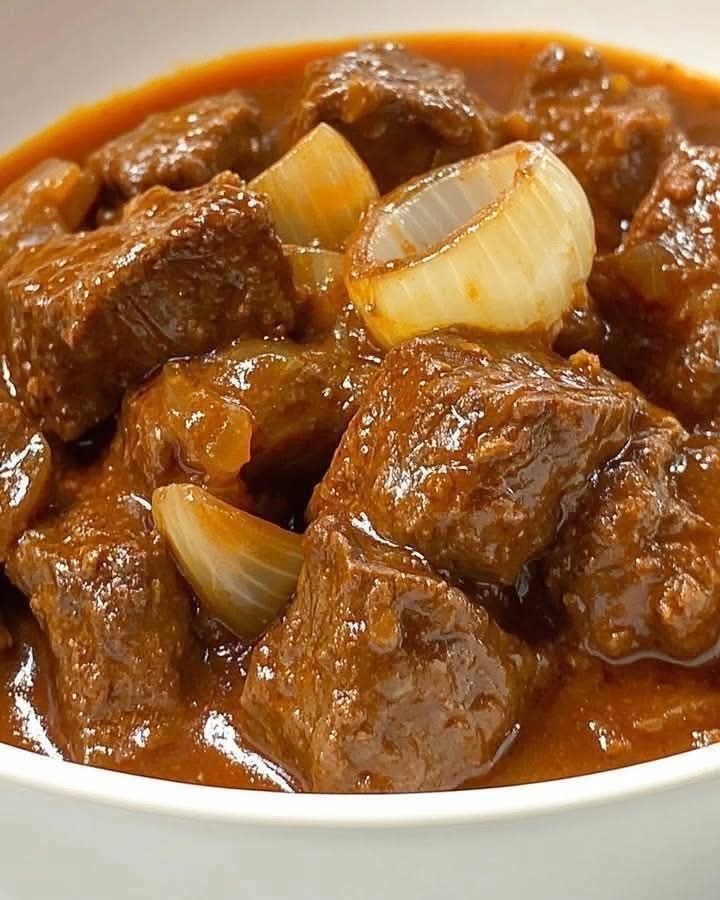ADVERTISEMENT
Introduction: This Instant Pot Greek Beef Stifado is a delicious and hearty dish with tender beef cooked in a flavorful stew full of aromatic spices and vegetables. The use of the Instant Pot makes it a quick and easy meal, perfect for busy weeknights or weekend gatherings. This dish is a comforting traditional Greek recipe that has been passed down for generations. Paired with rice, mashed potatoes, or crusty bread, it’s a meal that warms the heart and satisfies the soul.
Ingredients:
- 2 lbs (900g) beef chuck, cut into 1-inch cubes
- 2 tablespoons olive oil
- 1 large onion, chopped
- 1 lb pearl onions or small shallots, peeled
- 4 garlic cloves, minced
- 2 tablespoons tomato paste
- 1 can (14 oz) crushed tomatoes
- 1/2 cup red wine vinegar
- 1/2 teaspoon ground cinnamon
- 1 teaspoon dried oregano
- 1/2 teaspoon allspice
- 1 bay leaf
- 2 cups beef broth
- Salt and black pepper to taste
- Fresh parsley for garnish
Directions:
- Turn the Instant Pot to Sauté mode and heat the olive oil. Add the beef cubes in batches and sear until browned on all sides. Remove and set aside.
- Add the chopped onion and pearl onions to the pot. Sauté for 3-4 minutes until softened, then add garlic and cook for another minute.
- Stir in the tomato paste, crushed tomatoes, red wine vinegar, cinnamon, oregano, allspice, and bay leaf. Mix well to combine.
- Return the beef to the pot and pour in the beef broth. Season with salt and black pepper to taste.
- Close the lid, set the valve to Sealing, and pressure cook on High for 35 minutes. Let the pressure release naturally for 10 minutes, then do a quick release.
- Open the lid, stir the stifado, and taste for seasoning. Discard the bay leaf.
- Serve hot, garnished with fresh parsley, over rice, mashed potatoes, or crusty bread.
History:
Beef Stifado is a traditional Greek dish that dates back to the 18th century. It’s a stewed beef dish that originated in the region of Macedonia, where meat and slow-cooking methods were popular. Over the years, it has evolved, incorporating local herbs and spices, but the dish has remained a staple in Greek cuisine. It’s especially popular in the colder months due to its hearty and warming qualities.
Benefits:
Read more on next page
ADVERTISEMENT
ADVERTISEMENT
